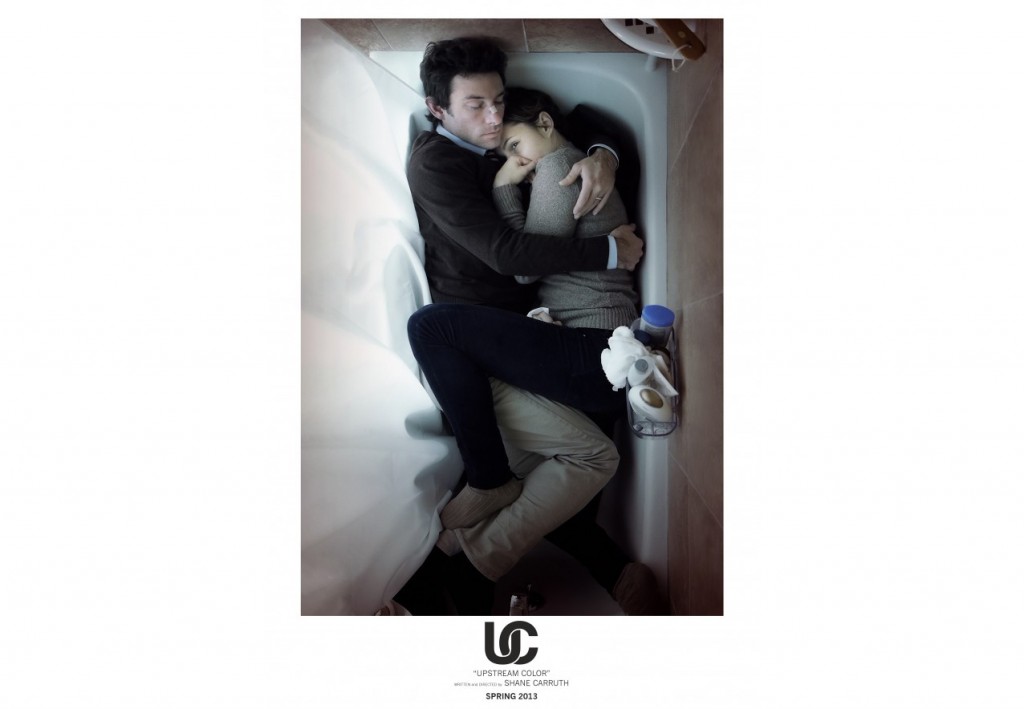
A pig runs out of a pen. Cut to an empty bus. Cut to a reverse shot of a couple lying on a pair of seats as they look at the empty bus.
This is how most of Shane Carruth’s increasingly challenging yet immens-ely cathartic “Upstream Color” can be. For those who are willing to embark on a philosophical quest packed with body horror and deeply palpable romance, “Upstream Color” may be one of the most emotionally resonant films of the past decade, despite the fact that it only contains a half hour of dialogue.
Without the Cronenberg-inspired body horror, “Upstream Color” would be similar to “The Tree of Life.” Carruth’s sophisticated and impressionistic direction tells the story of a woman, Chrissy (Amy Seimetz), who has a parasite placed inside her against her will.
The intense film does not spoon-feed the viewer with its narrative, which is totally acceptable because “Upstream Color” is largely a formalist work.
The film is even somewhat entertaining in its stylish first half, which engages mostly with the science fiction genre. Parasites, pigs, cells, body contortions and psychological tricks abound, and the viewer is left to piece all of it together.
In the fascinating second half, the film takes on a completely different mode, as Chrissy vanquishes the parasite, and she perchance meets and falls in love with Jeff (Carruth).
Stylistically, Carruth keeps the film tough and expressionistic. Tonally, however, the film is lighter and conceptually hefty, and “Upstream Color” is filled with these types of formal oppositions. At certain points, the narrative seems to take a recognizable trajectory, while at other points, it seems to veer into the realm of an advanced seminar for philosophy students.
Perhaps the contradictions in “Upstream Color” are the point of its meandering, elliptical plot, examining that point where science and feeling come together. If that is what Carruth means to articulate, then “Upstream Color” can be viewed as an exploration of what it means to be human. The transcendent final half hour — entirely devoid of dialogue — portrays humans as part biology and part emotion.
Then again, maybe it doesn’t mean that at all. And that’s one of the great things about “Upstream Color.” Like “2001: A Space Odyssey,” we won’t understand it now, and we can’t guarantee we’ll understand it in 50 years either. But we can still feel it now, and that’s what matters for a film so abstract, brilliant and complex.
A version of this article appeared in the Thursday, April 4 print edition. Alex Greenberger is entertainment editor. Email him at [email protected].
























































































































































